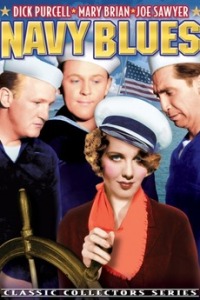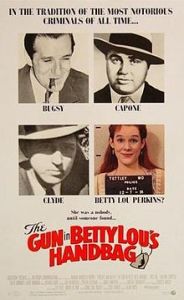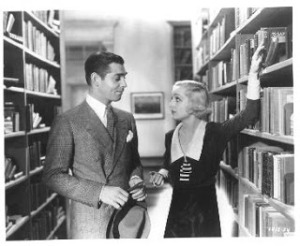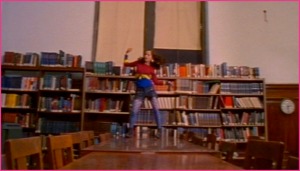This week as well as looking at some more librarians in film we will be just a little bit self indulgent as we celebrate an historic week for my football team but we will come to that at the end
Ever since the Prodigal Son came trotting back home a changed man, character transformation has become one of the great recurring themes in storytelling. Sometimes it is a literal transformation, Beauty and the Beast, Dr Jeykll and Mr Hyde or Clark Kent becoming the Man of Steel are obvious examples but our interest here is the more subtle transformation; the personal journey through love, struggle, adversity or in Clark Kent’s case a handy phone box to a higher level of personal satisfaction or achievement even if Clark never does quite get the hang of the correct trousers/underpants sequence. Of course to make this effective the protagonist has to start out as a pathetic, inadequate or insignificant character or as Hollywood likes to refer to them a librarian.
As we have already seem Hollywood seems to use the role of librarian as a convenient way to signal a combination of adjectives from a non-exclusive list that includes insignificant, quiet, prim, dull but this is sometimes because it gives unimaginative directors an easy or perhaps lazy way into the classic ugly duckling transformation plot as characters are placed either in peril or in comic situations or both, that enable them to emerge as a different and by implication better people if not actually better librarians. Sometimes it is love that is the catalyst for transformation.  This is what happens to prim and frosty librarian Doris Kimbell (Mary Brian) when she falls for dumb sailor Rusty Gibbs in the 1937 film Navy Blues. Not realising that womaniser Rusty has picked her up for a bet his unexpected interest succeeds in bringing out her natural beauty mainly by taking off her glasses and of course he ends up falling for her anyway but only after trying on a couple of deceptions to convince her he is more than just a thick sailor including some story about being in naval intelligence. This is all the set up for classic pre-war spy story where Rusty as part of his pick-up routine fakes interest in an algebra book that he borrows from Doris’s library as a pretext for getting to know her not realising that it contains secret codes from Doris’s current boyfriend who is not only stringing her along but is also deceiving her because he is a real spy for the bad guys. Do try and keep up. Rusty ends up being chased by both sides; the US Navy thinks he is working with the bad guys and the bad guys want their book back because it holds the key to their plot. Rusty and Doris are captured and interrogated by the bad guys including the boyfriend who ruins his chances with her when he ties her to a chair and she is gutted to find that this is not the start of some erotic bondage fantasy. It all ends happily of course because it’s a screwball comedy so Rusty end up as the hero of the hour, the spies get their comeuppance, Doris and Rusty get together properly and the Library gets its algebra book back and I presume Doris will let Rusty off for bringing it back late.
This is what happens to prim and frosty librarian Doris Kimbell (Mary Brian) when she falls for dumb sailor Rusty Gibbs in the 1937 film Navy Blues. Not realising that womaniser Rusty has picked her up for a bet his unexpected interest succeeds in bringing out her natural beauty mainly by taking off her glasses and of course he ends up falling for her anyway but only after trying on a couple of deceptions to convince her he is more than just a thick sailor including some story about being in naval intelligence. This is all the set up for classic pre-war spy story where Rusty as part of his pick-up routine fakes interest in an algebra book that he borrows from Doris’s library as a pretext for getting to know her not realising that it contains secret codes from Doris’s current boyfriend who is not only stringing her along but is also deceiving her because he is a real spy for the bad guys. Do try and keep up. Rusty ends up being chased by both sides; the US Navy thinks he is working with the bad guys and the bad guys want their book back because it holds the key to their plot. Rusty and Doris are captured and interrogated by the bad guys including the boyfriend who ruins his chances with her when he ties her to a chair and she is gutted to find that this is not the start of some erotic bondage fantasy. It all ends happily of course because it’s a screwball comedy so Rusty end up as the hero of the hour, the spies get their comeuppance, Doris and Rusty get together properly and the Library gets its algebra book back and I presume Doris will let Rusty off for bringing it back late.
No Man Of Her Own (1932) must count as a double transformation when dull small town librarian Carole Lombard runs off to the Big City after a whirlwind romance with a distinctly dodgy Cark Gable and finds a new life for herself and in the process makes a new man out of Gable which might explain why he was back in a library a few years later getting a kiss behind the stacks in Cain and Mabel (1936)
Peril works much better than romance though if you want a good ugly duckling movie. Let’s take librarian Betty Lou Perkins as a case study shall we. In The Gun In Betty Lou’s Handbag (1992), the eponymous heroine is as stereotypical librarian as you could wish to meet; mousey, quiet, cardigan the whole lot, but one who is tired of not being taken seriously so she comes up with the kind of novel plan to get herself noticed that only makes sense in so-called screwball Hollywood comedies or if you haven’t taken your medication for a few days. Betty Lou finds the gun that was used in the murder of a local mobster but no one takes any notice when she takes it along to the police station because a librarian in a police station is nearly as unlikely as a policeman in a library. To get their attention she fires the gun and of course ends up in the cells and just for good measure confesses to the murder which of course she hasn’t committed. Which is a bit of a problem for her husband who doesn’t take much notice of his wife either but he is a policeman tracking down the murderer so that’s his career down the pan then. It doesn’t get any better either because to teach him a lesson she also claims to have been the dead man’s lover, so that’s his home life down the drain too then. Betty Lou meanwhile ends up in the cells with all the hard-case girls and hookers and this being a screwball comedy they all take a liking to her instead of taking her  apart as they might have done in real life which is the cue for an Olivia Newton John in Grease level transformation in her appearance. Of course this is just the start of her problems as both the crooks and the cops are on her case. The real killer is convinced that as the dead man’s lover she must have the incriminating tape he wants back so he starts looking for her to have a quiet chat with the help of his other gun but finding her is a lot easier than he might think because the cops also want to use her as bait to smoke out the real killer which is of course a cue for a mere librarian to outsmart the cops, the robbers and her own husband who of course will be very attentive now that he knows how handy she is with a gun. Which is more than audiences were.
apart as they might have done in real life which is the cue for an Olivia Newton John in Grease level transformation in her appearance. Of course this is just the start of her problems as both the crooks and the cops are on her case. The real killer is convinced that as the dead man’s lover she must have the incriminating tape he wants back so he starts looking for her to have a quiet chat with the help of his other gun but finding her is a lot easier than he might think because the cops also want to use her as bait to smoke out the real killer which is of course a cue for a mere librarian to outsmart the cops, the robbers and her own husband who of course will be very attentive now that he knows how handy she is with a gun. Which is more than audiences were.
Another theme which Hollywood has worn way past threadbare and a close relative to the ugly duckling cliche is the zero-to-hero plot where rich socialite/playboy/girl tire of their empty lives, experience an epiphany and resolve in a tearful denoument to become a nun/missionary/charity worker/world champion whatever. So it must have brought a gleam to the eye of jaded producers when someone pitches the idea for Party Girl (1995) Hey, why don’t we subvert those cliches with a satirical take; how funny would that be? Well, in the case of Party Girl it would be about as funny as funny as Carry On Shawshank Redemptioning or to put it another way bloody awful.
When one of the wild parties she throws for her cool but shallow friends leaves her needing to borrow bail money from her godmother, hedonistic, irresponsible Mary is shamed into taking a job to pay the money back and show she can act responsibly. To make sure Mary’s humiliation is complete she is forced to work at the public library where Judy her godmother is the chief librarian. Not only does Mary hate the job but she is continually criticised by her godmother until finally she is goaded into showing she really she can do the job and so begins her long dark journey of the soul; she masters the Dewey Decimal Classification Scheme. So taken is she with her new skills that she helps her friends by classifying the record collection of one and the clothes of another who show their appreciation by being horrified.
She also manages to show how much she enjoys her job by choreographing her book shelving, dancing on the library tables, and having sex in the library although to be fair that does get her the sack although many librarians would have shown her the door after the dancing. Mary’s epiphany is a spectacularly decadent birthday party and a bad trip. Resolved to sort her life out and go to Graduate School Mary arranges to discuss her future with Judy back at her flat where her friends noticing how down she has been lately have organised a surprise party. To help the audience grasp her epiphany Mary has swapped her usual day-glo psychedelic party outfits for the librarians uniform of sober grey suit, bun and dark rimmed glasses but Judy’s scepticism is confirmed when she witnesses the wild party. This is cue for the usual emotional denoument where our hero pleads for a chance to be nun/missionary/charity worker/world champion whatever. In this case though Mary plea for Judy’s help to become a librarian isn’t helped by the over close attention of a male stripper gyrating all over Mary’s sober suit in only his jock strap and gets even more surreal when Mary is quizzed about her librarian skills with the naked stripper chained to a drain pipe in the background. Of course it is all resolved when Judy relents and even joins the partying.
Party Girl is most unusually an entire film about librarians, a kind of reverse Pygmalion or My Fair Librarian as the heroine moves from Gaultier outfits and wild hip parties to become the “mainstay of the public library”; I would have entitled it From Disco to Dewey but that is why I don’t work in marketing. Delighted though I am that my profession has made it properly to the silver screen I’m not sure which comes off worse all that hedonistic partying or librarians and an emotional denoument that includes the lines “I want to be a librarian” doesn’t just lack the dramatic popwer of “I want to be champion of the world” its is, frankly, just bizarre. Nonetheless it already has a place in cinema history as the first film to premiere on the internet which is an achievement better than the TV spin off which lasted just four episodes.
Finally before we move on and just in case you are one of the two people who actually watched the TV pilot I will make a passing mention of Final Notice (1989). It which features yet another librarian this time played by Melody Anderson who gets herself mixed up in the kind of deadly games that Library School could only have prepared her for if they ran modules on being held at knifepoint by psychopaths, being very scared and screaming. A number of books with all the images of women mutilated are discovered in her library followed by a real murder with similar mutilations and the librarian teams up with the detective to track down the killer. I haven’t included that in our films about the transformation of librarians because there isnlt one. Melody’s librarian is attractive, confident and makes all the running in the usual mis-matched love affair plot with the unhappy, cynical cop. I also left it out of the post about bodies in the library because although the bodies were library users they weren’t actually found dead in the library. In any case I am sure that some zealous library users may find the fact that the film features the gratuitous vandalism of library books more disturbing than the discovery of dead bodies.
Finally those who know me will not be surprised that we cannot leave a post in this historic week without celebrating the achievement of a team I started watching in the very early 1960’s. It has been called, and who am I to argue




